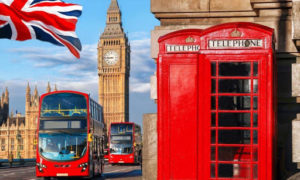
to get in\ to get on: to enter or to board a vehicle
-
- To get in is used for cars; to get on is used for all other forms of transportation.
- It’s easiest to get in the car from the driver’s side. The door on the other side doesn’t work well
- I always get on the bus to work at 34th Street.
to get out of \to get off: to leave or to descend from a vehicle
- To get out of is used for cars: to get off is used for all other forms of transportation.
- Why don’t we stop and get out of the car for a while?
- Helen got off the train at the 42nd Street terminal
to put on: to place on oneself (usually said of clothes) (S)
Mary put on her coat and left the room.
Put your hat on before you leave the house.
to take off: to remove (usually said of clothes) (S)
- John took off his jacket as he entered the office.
- Rare your sweater off. The room is very warm.
to turn on: to start or cause to funcrion (also: to switch on) (S)
- Please turn on the light: it’s too dark in here
- Do you know who turned the air conditioning on?
to turn off: to cause to stop functioning (also: to switch off, to shut off) (S)
- Turn on and turn off, as well as their related forms, are used for things that flow, such as electricity, water, gas, ets.
- Please turn off the light when you leave the room.
- Are you really listening to the radio, or should I turn it off?
right away: very soon: immediately ( also: at once)
- Dad says that dinner will be ready right away, so we’d better wash our hands and set the table.
- Tell Will to come to my office right away. I must see him immediately.
- Stop playing that loud music at once!
to pick up: to lift with one’s fingers or hands (S); to retrieve or collect (S): to lern (S)
- Harry picked up the newspaper that was on the front doorstep.
- Lucia was so busy that she forgot to pick her son up from school.
- Margot picks up math easily, but she is not g0od at reading.
sooner or later: eventually, after a period of time.
- If you study English seriously, sooner or later you’ll become fluent.
- I’m too tired to do my homework now; I’m sure I’ll do it sooner or later.
to get up: to arise, to rise from a bed; to make someone arise(S)
For the last definition a noun phrase must separate the verb and particle.
- Carla gets up at seven o’clock every morning.
- At what time should we get the children up tomorrow?
to come up with: to find, to discover.
- After worrying for days, I finally came up with a solution to my problem.
- Even though Kwan doesn’t have a job, he always comes up with enough money to pay his bills.
at first: in the beginning, originally
- At first English was difficult for him, but latter he made great progress.
- I thought at first that it was Sheila calling, but then I realized that it was Beth.













